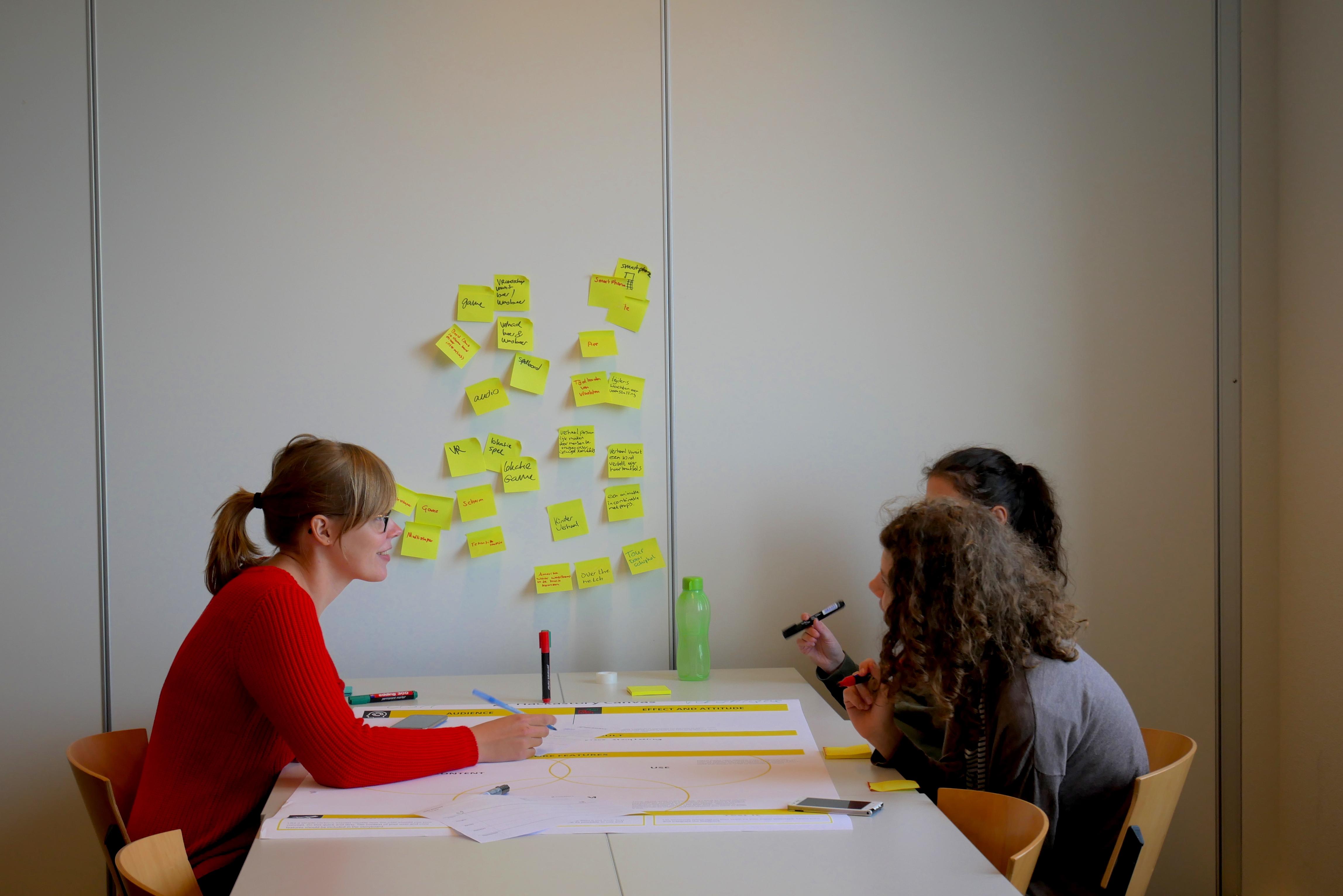
What is impact? Thousands of people who read your story? Ok, next question: what do those thousand readers mean to you? Most of the time when I ask a journalist these questions, they say they don’t know. When I dig deeper and just keep asking them ‘why’ over and over again, the deeper motivation reveals itself: they want people to start asking political questions, start a debate, change fundamental things like taboos and uncover wrongdoings in this world. They want to have an impact on humans instead of saying that thousands of people clicked their article.
In Venezuela, I visited Efecto Cocuyo together with Hackastory co-founder Nienke Huitenga. They told us the most impactful story I have ever heard. A lot of people fled the country because there is a shortage in almost everything. Hyperinflation, poverty and more danger than ever before. The journalists of Efecto Cocuyo interviewed a mother whose son is very ill. She couldn’t get the medicine she needed for him. Due to the hyperinflation, she couldn’t afford it, and secondly, it wasn’t in stock anymore. They published the story and beside all the clicks, people were actually engaging in conversation via comments on social media. One stood out. A comment of a Venezuelan living in Spain now. She wanted to send a batch of the medicine to the woman because that boy deserved to live. Now that is impact!
“As you know in Venezuela we don’t have many sources of reliable information. The classic media are politicized. Efecto Cocuyo is one of the new spaces of information for citizens to understand what is happening in their country. A way to avoid censorship. For me, they are a reference. I am a human right defender, therefore this information is very important. I need it in my work.”
– Bibi, Member of the Efecto Cocuyo audience
Clickbait VS Impact
In times of crisis, we generally see that (investigative) journalism becomes a higher priority within society. This is not solely the case in Venezuela. You can tell from the fake news mayhem all around the world, there is a clear cry for help towards journalists to dig deep and make stories with impact. The way to have an impact are diversifying. Look at recent developments like the Panama Papers, the reporting on #metoo, or the overturned death sentence of teenager Noura due to #JusticeForNoura or, in my country, how Dutch TV journalist Tim Hofman started a petition and received 200.000 signatures in two days to hold our government accountable for the unreasonable deportation of 400 refugee children.
So, What is it that you want? That your story is clicked a thousand times? Which means you wrote a very delicious clickbait title. Or do you want people talking about your story when they grab a cup of coffee? That politicians start questioning their policies because of a story you wrote? That you shed a light on wrongdoings that wake up a lot of people. I think almost every journalist started their career with the ideal to actually change something in this world, not to work for clickbait.
Analytics, it’s a start
Of course, your analytics can give you an insight about where to start. You learn how much time your average audience spends on your platform, and how many articles they check. Whether they mostly use their mobile devices or desktop, who are your fans and where are they located? Politifact used these basic insights as a starting point for something more thorough and meaningful.
Politifact knew they weren’t reaching any republicans in the US. They saw it probably in their analytics too. Was this a problem? No, they saw it as an opportunity. They went on a tour through three states: Alabama, Oklahoma en West-Virginia. They wanted to find out why audiences in this region did not connect to Politifacts reporting. They stayed a week in every state and held presentations and talking sessions to learn more about the needs and wishes of this audience segment they weren’t reaching. They asked the people who were present at these meetings what their assumptions were about Politifact. They found out people find them biased. So they wondered if transparency could change their attitude towards Politifact. During the presentations, they showed how they worked and offered complete transparency about their reporting. Before their visits and after they conducted a simple survey with the question ‘Is Politifact biased against Republicans?’ Before the tour 46% said no, after the tour 85% said no. Did this mean that they found a new audience group? Maybe not, but now they knew which world of experiences lurked behind their analytics. They have set out their mission to find ways to engage the Republican-oriented part of their audience more.

Tips to know why they do what they do
- Grab a notepad and walk out of the office during lunch break.
- interview at least five people with the 5x why method. You can start with why do you visit our website (or app)? And then continue asking why. This way you get to the deeper motivation of why they do what they do.
- Repeat this until you have talked to 5 different persons. Make sure to mix old, young, employed, student, man, woman. Get a broader vision of your audiences’ reasons for their news consumption behavior.